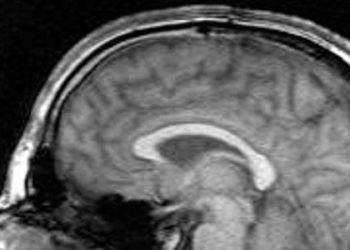Complete dissection does not increase survival for sentinel-node positive melanoma patients
1. Patients with melanoma and positive sentinel lymph-nodes treated with immediate completion lymph-node dissection did not have increased melanoma related survival at three years compared to patients who were followed-up with observation and nodal ultrasound.
2. Those patients who underwent completion dissection did have better rates of regional disease control compared to the observation group.
Evidence Rating: 1 (Excellent)
Study Rundown: Melanoma patients often undergo sentinel lymph node biopsies, as they experience fewer recurrences than patients who have wide excision and nodal observation. Treatment with immediate completion lymph-node dissection is often recommended for patients with positive sentinel lymph-nodes, though there is a lack of convincing evidence for this practice. Given the possible adverse events of complete dissection, further evaluation is warranted. In this study, completion lymph-node dissection was compared to observation and frequent nodal ultrasounds for melanoma patients with positive sentinel lymph-nodes.
In this international phase three trial, patients were randomized into dissection and observation plus ultrasound groups. They were followed to assess for a primary outcome of melanoma-related survival, and secondary outcomes such as disease-free survival and metastasis-free survival. Outcomes were compared at 3 years. At 3 years follow-up there was no significant difference in melanoma-specific survival between the two groups. Disease-free survival and regional disease control rates were higher in the dissection group compared to the observation group. Lymphedema as an adverse outcome was more common in the dissection group. These results indicate that completion dissection does not improve survival for melanoma patients with positive sentinel nodes if patients can follow-up with providers regularly for nodal evaluations and ultrasounds.
Click to read the study, published in NEJM
Relevant Reading: Sentinel-node biopsy or nodal observation in melanoma
In-Depth [randomized controlled trial]: This phase three randomized trial (Multicenter Selective Lymphadenectomy Trial II, MSLT-II) involved 63 international centers and enrolled patients from 2004 to 2014. Patients enrolled had localized cutaneous melanoma and sentinel lymph-node metastasis confirmed by either pathology or RT-PCR (reverse-transcriptase–polymerase-chain-reaction). They were then randomized in a 1:1 manner to a completion lymph-node dissection (n = 967 intention-to-treat (ITT), n = 824 per-protocol (PP)) or nodal observation with ultrasound monitoring (n = 967 ITT, n = 931 PP) group. In the observation group, clinical exams and ultrasounds occurred during the first 3 years of follow-up at 4-6 month intervals. Many more patients declined completion dissection (n = 140) than observation (n = 29). The primary end-point of analysis was melanoma-specific survival, and secondary endpoints included disease-free survival and disease control. At 3 years follow-up, the PP analysis showed no difference in melanoma-specific survival between the dissection and observation groups (86±1.3% and 86±1.2%, respectively; p = 0.42). The rate of disease-free survival was greater in the dissection group compared to the observation group (68±1.7% and 63±1.7%, respectively; p = 0.05), as was the rate of disease control in regional lymph nodes (92±1.0% and 77±1.5%, respectively, p < 0.001). Nodal recurrence occurred 69% less in the dissection group compared to the observation group (hazard ratio 0.31; 95%CI 0.24 to 0.41; p < 0.001). Lymphedema occurred more in the dissection group (24.1% vs 6.3%, respectively; p < 0.001).
Image: PD
©2017 2 Minute Medicine, Inc. All rights reserved. No works may be reproduced without expressed written consent from 2 Minute Medicine, Inc. Inquire about licensing here. No article should be construed as medical advice and is not intended as such by the authors or by 2 Minute Medicine, Inc.







